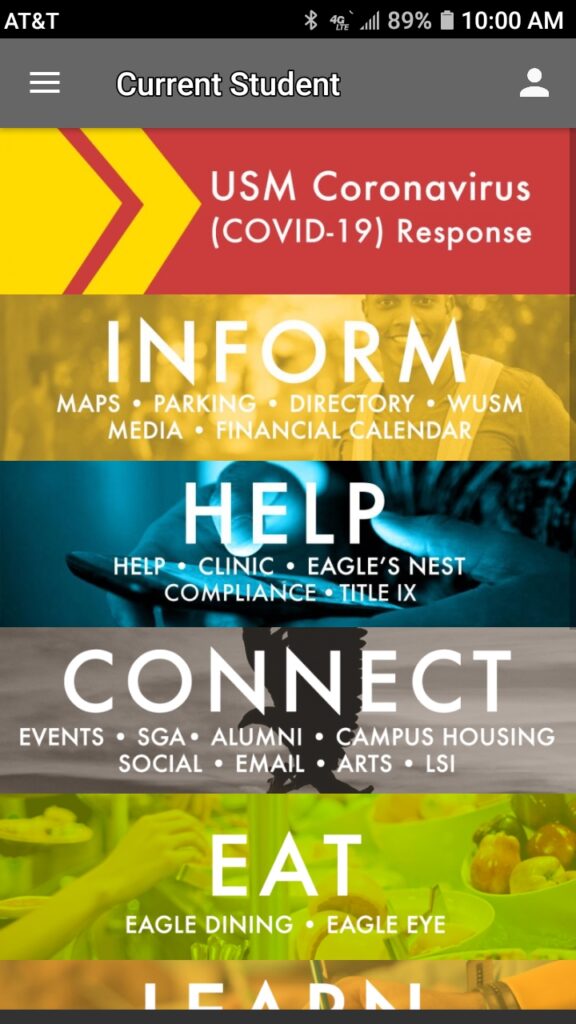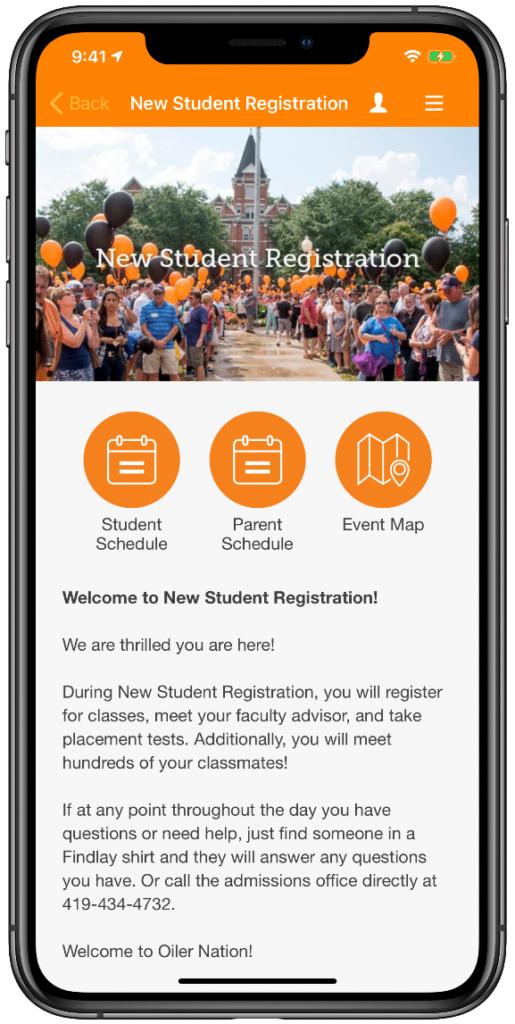By Matt Willmore
With campuses nationwide closed and plans for the Fall semester still highly uncertain, it’s more important than ever for universities and colleges to deepen communication and interaction with enrolled students, prospects and their family members. There is immense pressure on institutions of all sizes to maintain enrollment yield.
One of the most effective ways to accomplish this is with an engaging, powerful campus app—not just a mobilized version of your institution’s website, but instead a richer, interactive, mobile-first college experience filled with specialty tools that bring students closer to on-campus resources.
With 13 years in the business, we at Modo Labs have worked with more than 300 U.S. colleges and universities to find the most helpful and popular app resources and how to best leverage each of those using a mobile platform. We can help your school, too.
In the “new normal” of COVID-19, a campus app can help assure your students of a seamless transition back onto campus as rules relax around social distancing. It also provides a common thread for students, staff, faculty and the entire campus community to engage with the school. No matter how long students are away from campus or where they happen to be at any point in time, a dedicated campus app can deliver the best of on-campus life virtually and 24 hours a day.

A campus app is arguably one of the most equitable ways to communicate with your student population, diverse as they may be. As the Pew Research Center reports, 96% of Americans aged 18-29 own a smartphone, making these devices one of the most ubiquitous household technologies. The same study indicates that one in five American adults own a smartphone and lack traditional home broadband services, relying on those smartphones for all Internet-based communications most of their communications. Furthermore, people of color, older adults, rural residents and people with lower levels of income are even less likely to have broadband service at home. For these reasons and more, smartphones are critical to building and supporting their sense of community.
An additional advantage to a campus mobile app in a post-coronavirus environment is the ability for students, staff, faculty and the campus community to find answers about campus life while reducing the number of in-person interactions. By providing everything in an easily consumable and accessible format, your users can find what they need in an instant without the need to meet with someone or stand in line for help.
Schools can take advantage of this mobile-first mindset to nurture student relationships in a number of different ways. For example, using the app to centralize and distribute critical information from trusted sources drives usage of the app as a hub of information for your users. Your school can also fast-track urgent announcements and features including a COVID-19 hotline, online learning tips and suggestions on how to stay healthy at home. If there’s a subsequent outbreak requiring users to stay away from campus, students will already know where to go for up-to-the-minute information.
Virtual campus tours, remote student orientations and Admitted Student Days are additional ways to keep incoming learners and their families excited to start their college careers at your campus. The mobile app can serve as the authoritative source of information about attending in the Fall and engage users again and again.

Your mobile campus app can even support student coursework. This can include links to course schedules, allow them to see information about assignments and tasks and receive personalized communication for targeted engagement across the college experience. It can even serve as their secure academic dashboard to review their academic and financial aid standing, register for courses and manage their student balances.
While on campus, students can easily view available resources like Amazon lockers, washer and dryer availability and dining hall hours. Several California State University System schools, including Sacramento State, communicate availability of free food for students in need. In all cases, the app is enabling students to connect and engage with the university community.
Finally, for students who are unable to celebrate the timeless college milestone of commencement in person, a mobile campus app can broadcast live virtual ceremonies and provide inspirational pre-recorded speeches. Students can dress up in their cap and gown, and both they and their parents can share stories and memories directly through the app.
Above all else, it’s critically important to make a mobile campus app your engagement hub now, and continue its use as students migrate back to campus (and potentially return to remote learning in the future). An app is an essential service for your entire campus community no matter where “campus” is on any given day.
About Matt Willmore
Matt Willmore is the senior director of product marketing at Modo Labs. He previously managed University of Notre Dame’s mobile presence. Find him on Twitter at @redrobot.


